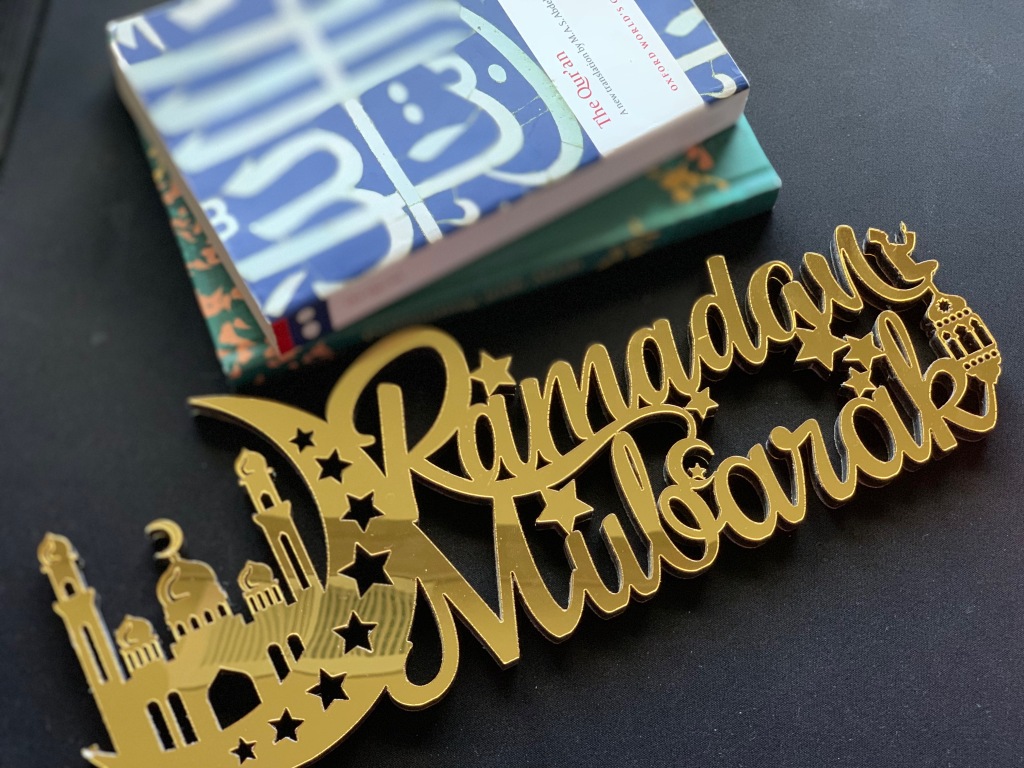
As the holy month of Ramadan approaches, families around the world are preparing to embark on a journey of spiritual reflection, self-discipline, and devotion. For homeschooling families, Ramadan presents a unique opportunity to integrate faith and education, fostering a holistic approach to learning that transcends the confines of traditional classroom settings. I invite you into our homeschooling world as we prepare to embark on this sacred journey together. From enriching resources to cherished rituals, we’re gearing up for a month filled with learning, reflection, and connection.
What is Ramadan?
Ramadan is a super special time for Muslims around the world. It’s a whole month where we focus on getting closer to Allah, our Creator, through fasting, praying, and doing good deeds. During Ramadan, we fast from dawn until sunset, which means we don’t eat or drink anything during the daylight hours. It’s not just about skipping meals though; it’s about self-discipline, gratitude, and empathy for those who are less fortunate. It’s also a time for spending extra time with family, doing extra prayers, and reflecting on how we can be better people. Ramadan is like a spiritual recharge for our hearts and souls, and it’s always a special and exciting time for us!
There are two important meals during Ramadan. Suhoor is the meal we eat before the sun comes up, kind of like our breakfast before starting our fast. It’s super important because it helps us fuel up for the day ahead and gives us the energy we need to fast. We often have wholesome foods like oats, fruits, and protein-rich dishes to keep us feeling full and energized until sunset.
And then, when the sun sets, we have Iftar, which is like a big, celebratory dinner to break our fast. It’s such a special time to come together with family and friends and enjoy delicious food after a day of fasting. We prepare all sorts of tasty dishes, from traditional favorites to special treats, and the joy of sharing this meal with loved ones is truly heartwarming.
When we break our fast during Iftar, it’s a tradition to start with dates. Dates are not only delicious but they also provide a quick source of energy after a long day of fasting. Plus, Prophet Muhammad (peace be upon him) used to break his fast with dates, so it’s a sunnah, or tradition, that we love to follow. After having dates and some water, we then move on to the rest of our meal, savoring each bite with gratitude and appreciation for the blessings of Ramadan.
Embracing the Spirit of Ramadan
For homeschooling families, this sacred month offers an ideal opportunity to incorporate Islamic teachings and values into their educational curriculum. From reading Quranic verses and learning about the life of the Prophet Muhammad (peace be upon him) to engaging in discussions about the significance of fasting and practicing acts of kindness, homeschooling during Ramadan provides a unique platform for nurturing faith and character development.
Integrating Faith and Learning
One of the key benefits of homeschooling during Ramadan is the ability to seamlessly integrate faith-based learning into daily academic activities. Families can explore Islamic history, art, and literature, delve into the science of fasting and its physiological effects on the body, or even incorporate math lessons centered around calculating the lunar calendar. By weaving Islamic principles and teachings into various subjects, homeschooling parents can instill a deep sense of religious identity and belonging in their children, while simultaneously fostering a love for learning.
Fostering a Culture of Reflection and Gratitude
Ramadan encourages believers to engage in self-reflection, gratitude, and mindfulness. Homeschooling provides the perfect platform for fostering these virtues within the family dynamic. Parents can encourage their children to journal their thoughts and reflections on a daily basis, discussing their experiences and insights as a family. Additionally, families can come together for communal iftars (breaking of the fast) and evening prayers, creating an atmosphere of unity and spiritual fellowship that enriches the homeschooling experience.
Practical Tips for Homeschooling During Ramadan
While homeschooling during Ramadan can be a deeply rewarding experience, it also comes with its own set of challenges. To ensure a smooth and successful homeschooling journey during this sacred month, consider the following tips:
- Plan Ahead: Set realistic goals and expectations for homeschooling activities, taking into account the reduced energy levels that may accompany fasting.
- Prioritize Spiritual Growth: Allocate time for Quranic recitation, dua (supplication), and other spiritual practices as part of your daily routine.
- Embrace Flexibility: Be open to adjusting your homeschooling schedule to accommodate the rhythms of Ramadan, allowing for rest and rejuvenation as needed.
- Encourage Acts of Kindness: Incorporate opportunities for charitable giving and community service into your homeschooling curriculum, reinforcing the importance of compassion and empathy.
- Stay Connected: Seek support from fellow homeschooling families and community members, sharing resources, ideas, and encouragement to enhance your Ramadan homeschooling experience.
Enriching Ramadan Resources
I try to make our Ramadan days meaningful by adding in some outside resources for my son. Our homeschooling library received a delightful boost this year with new book purchases from The Crescent Moon bookstore. From captivating tales of Islamic folklore to beautifully illustrated stories of faith and resilience, these books have become cherished additions to our literary collection. As we curl up with these literary treasures, we’re transported to faraway lands and timeless tales that inspire and uplift our spirits.
Participating in Noor Kids Ramadan Camp has become a highlight of our homeschooling journey. With engaging lessons, fun activities, and interactive discussions, my son is learning about the importance of faith, community, and compassion in a nurturing and supportive environment. Noor Kids Ramadan Camp fosters a sense of belonging and connection, empowering my to son to embrace his Muslim identity with pride and confidence.
Also part of our preparations for Ramadan, we’ve gifted our son with a new Quran and Dua Made Easy Cards. These resources serve as invaluable tools for nurturing his spirituality and strengthening his connection to Allah. With his new Quran in hand, he eagerly embarks on the journey of memorization and reflection, while the Dua Made Easy Cards provide simple yet profound supplications to guide him through the challenges and joys of daily life. To enrich our understanding of Islamic history and heritage, we’ve incorporated resources from Unboxed History into our homeschooling curriculum.
Sustaining Body and Soul with Meal Prep and Family Meals
Oh, in addition to nourishing our minds and hearts, we’re also mindful of nourishing our bodies during Ramadan. Meal prepping and making hearty meals to sustain us throughout the day become cherished rituals in our homeschooling household. Meal prepping has been a great way for us to spend time as a family. This year I had my son help me plan our meals and meal prep items. He really enjoyed this time because we have had some meaningful conversations.
Homeschooling during Ramadan is a deeply enriching experience that allows us, as homeschooling moms, to nurture our children’s hearts, minds, and souls in profound ways. By balancing faith and education, embracing flexibility, seizing teachable moments, cultivating a culture of reflection, and building a supportive community, we can create a homeschooling experience that honors the spirit of Ramadan and fosters growth and learning for our children. May this Ramadan be a blessed and transformative journey for homeschooling families everywhere.





